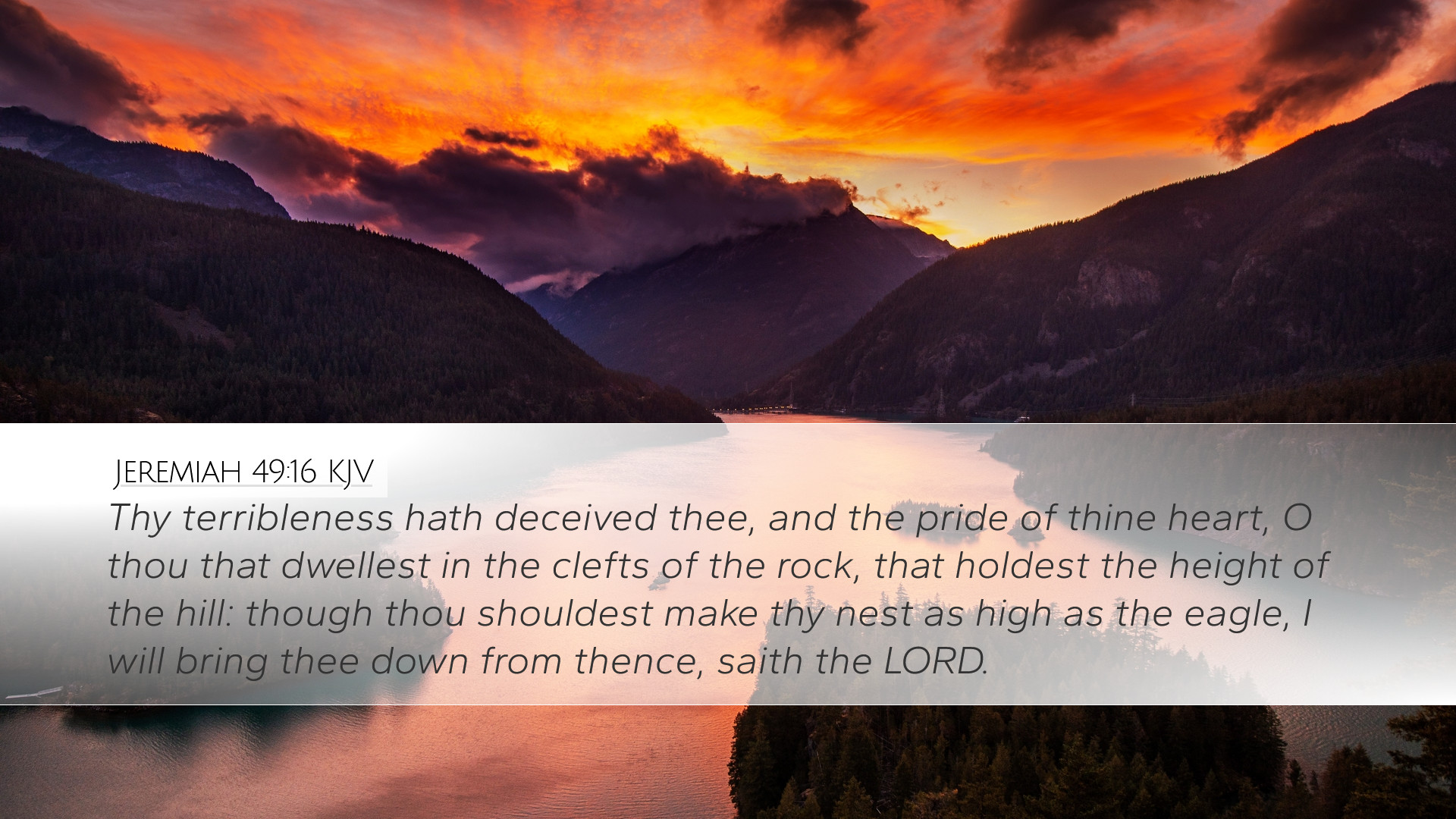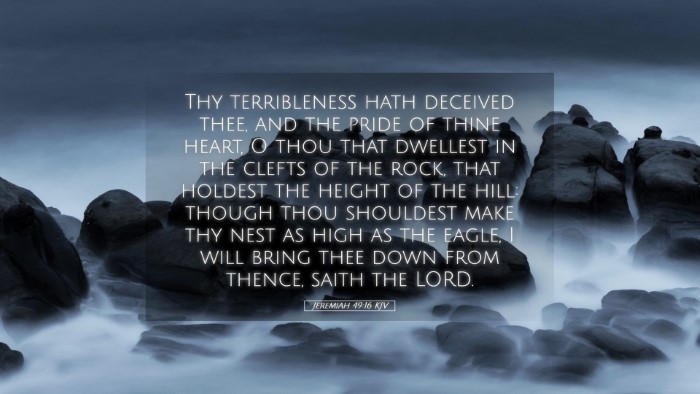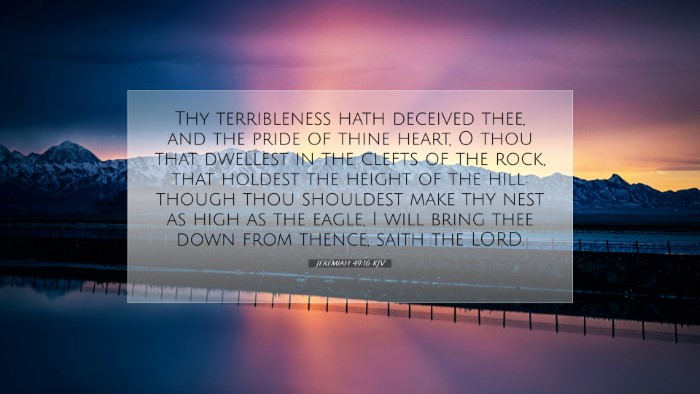Commentary on Jeremiah 49:16
Jeremiah 49:16 states, "Thy terribleness hath deceived thee, and the pride of thine heart, O thou that dwellest in the clefts of the rock, that holdest the height of the hill: though thou shouldest make thy nest as high as the eagle, I will bring thee down from thence, saith the LORD." This verse encompasses profound themes of pride, deception, and divine retribution, which are essential for understanding the broader context of God's judgment against the nations.
Introduction
As we delve into this verse, various public domain commentaries offer invaluable insights that illuminate its meanings and implications. The commentaries of Matthew Henry, Albert Barnes, and Adam Clarke provide rich theological reflections that can be instrumental for pastors, students, and scholars alike.
The Context of Jeremiah 49
Jeremiah 49 is situated within a series of prophetic oracles against foreign nations. The specific focus of this chapter is on Edom, a nation consistently characterized by its arrogance and enmity towards Israel. Understanding the historical and cultural backdrop is vital for grasping the severity of God's message.
Commentary Insights
Matthew Henry's Perspective
Matthew Henry emphasizes the spiritual blindness and self-deception that accompanies pride. He notes that the "terribleness" of Edom refers to the nation's reputation and fearsome strength, which have contributed to a false sense of security. Henry references Proverbs 16:18, underlining that pride precedes destruction, highlighting that the Edomites have "planted their hopes on their own wit and strength."
Albert Barnes’ Interpretation
Albert Barnes provides a detailed analysis of the metaphorical language employed in the verse. He elaborates on the "clefts of the rock," signifying the supposedly impregnable positions and fortifications of Edom, symbolizing their reliance on natural defenses rather than God. Barnes clarifies that despite their attempts to elevate themselves, God’s decree is absolute: they shall be brought down, reflecting the sovereignty of God over all nations.
Adam Clarke's Commentary
Adam Clarke discusses the pride engrained in the Edomite identity. He refers to the historical context, suggesting that their dwelling in high cliffs resulted in a misplaced confidence in their own security. Clarke highlights the eagle imagery, which indicates heights of arrogance; nonetheless, God's omnipotence will overshadow their perceived invincibility. He stresses that no matter how fortified they believe themselves to be, they cannot escape divine judgment.
The Themes of Pride and Deception
The verse profoundly addresses themes of pride and deception, with the Edomites so ingrained in their arrogance that they are blinded to their impending doom. This serves as a cautionary tale about the nature of human pride and its consequences; the idea that self-sufficiency without reliance on God leads to destruction is a recurring theme throughout Scripture.
The Dangers of Pride
-
Spiritual Blindness: As seen in Edom, pride distorts one's perception, leading to an underestimation of God’s power and judgment.
-
False Security: Confidence in human strength, wealth, or wisdom can result in a delusion of invulnerability.
-
Divine Retribution: The text confirms that God does not ignore prideful actions; instead, He holds nations and individuals accountable.
Application for Today
For modern believers, the lessons drawn from Jeremiah 49:16 are incredibly relevant. The pride that overtakes individuals and nations today remains a significant hurdle in spiritual growth. It is vital for pastors and leaders to convey the importance of humility and a dependence on God’s providence.
Practical Reflections
-
Self-Examination: Believers are encouraged to reflect on areas of pride in their lives and to seek God’s guidance to overcome them.
-
Community Awareness: Churches and Christian communities must maintain vigilance against prideful attitudes that can undermine unity and purpose.
-
Encouraging Humility: Pastors should preach and teach about the virtues of humility, drawing from examples seen in Scripture and Christ’s ministry.
Conclusion
Jeremiah 49:16 prompts deep reflection on the nature of pride and the consequences of neglecting to acknowledge God’s sovereignty. The insights provided by Matthew Henry, Albert Barnes, and Adam Clarke collectively enhance our understanding, urging us to heed the warnings against self-deception and arrogance. As we reflect on this passage, it is our call to embrace humility, recognizing that true strength lies in surrender to God's will.


